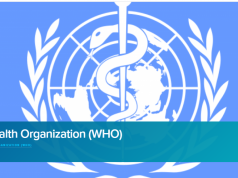In October 2018, a Hong Kong Official had announced a complete ban on e-cigarettes and other innovative tobacco products. However, last week on the 2nd of June, Legco’s Bills Committee on Smoking announced that it ceased discussions over the ban.
The Committee was established in March 2019 to tackle the ban that aimed to impose a blanket ban on electronic devices. However, after nine meetings, including three public hearings, the Committee thankfully concluded that allowing the use of e-cigarettes will provide smokers with safer smoke-free alternatives.
Asia has worrying smoking rates
“CAPHRA is pleased to see that the impending ban on HTPs in Hong Kong has been abandoned by the government in favour of a pragmatic, science-based approach to tobacco harm reduction,” she said. “It was pleasing to see that some of the officials involved in the process to decide the fate of the products strongly opposed the ban based on science that proves that HTPs have a lower level of toxicants compared to cigarettes, whilst addressing the concerns of creating black market in illicit trade in the products.”
Loucas added that sadly in the past year, many heated tobacco users were forced back to smoking due to being unable to purchase the products. “Others, with the means, have risked being caught buying through illicit channels. Legislators such as Peter Shui, Raymond CHan and Cheng Chunt-tai, have repeatedly argued that a ban was neither logical nor feasible. More importantly, all three pointed out that adult smokers should not be deprived of the right to choose tobacco harm reduction,” she added.
The Philippines should follow suit
A vaping group in the Philippines also welcomed Hong Kong’s decision, adding that the Philippines should follow suit. “We welcome the Hong Kong Legislative Council’s decision to end the discussions on the proposed ban on electronic cigarettes and heat-not-burn tobacco products amid scientific evidence that these smoke-free alternatives have significantly lower levels of toxicants compared to combustible cigarettes,” said Peter Paul Dator of The Vapers Philippines.
“Rather than a proposed ban, authorities should consider regulation of vaping products and other innovations to prevent the rise of underground activities which are not subject to health standards. The decision of the Bills Committee on Smoking also proves what we have been saying all along—that the most effective way to end smoking is to provide the public with better alternatives in the form of harm reduction products such as e-cigarettes and heat-not-burn tobacco products, which according to a Public Health England review are at least 95-percent less harmful to humans than combustible tobacco,” added Dator.
“The decision of Hong Kong’s Legco should also encourage other Asian countries like the Philippines to look at the merits of THR (tobacco harm reduction) products as effective tools to quit smoking. In the Philippines, THR products can provide 16.6 million adult smokers better alternatives than combustible tobacco. About 77 percent of these smokers wanted to quit, but could not, because of the lack of information on safer alternatives and the Department of Health’s adverse position on innovations.”













